

 Department Homepage
Department Homepage
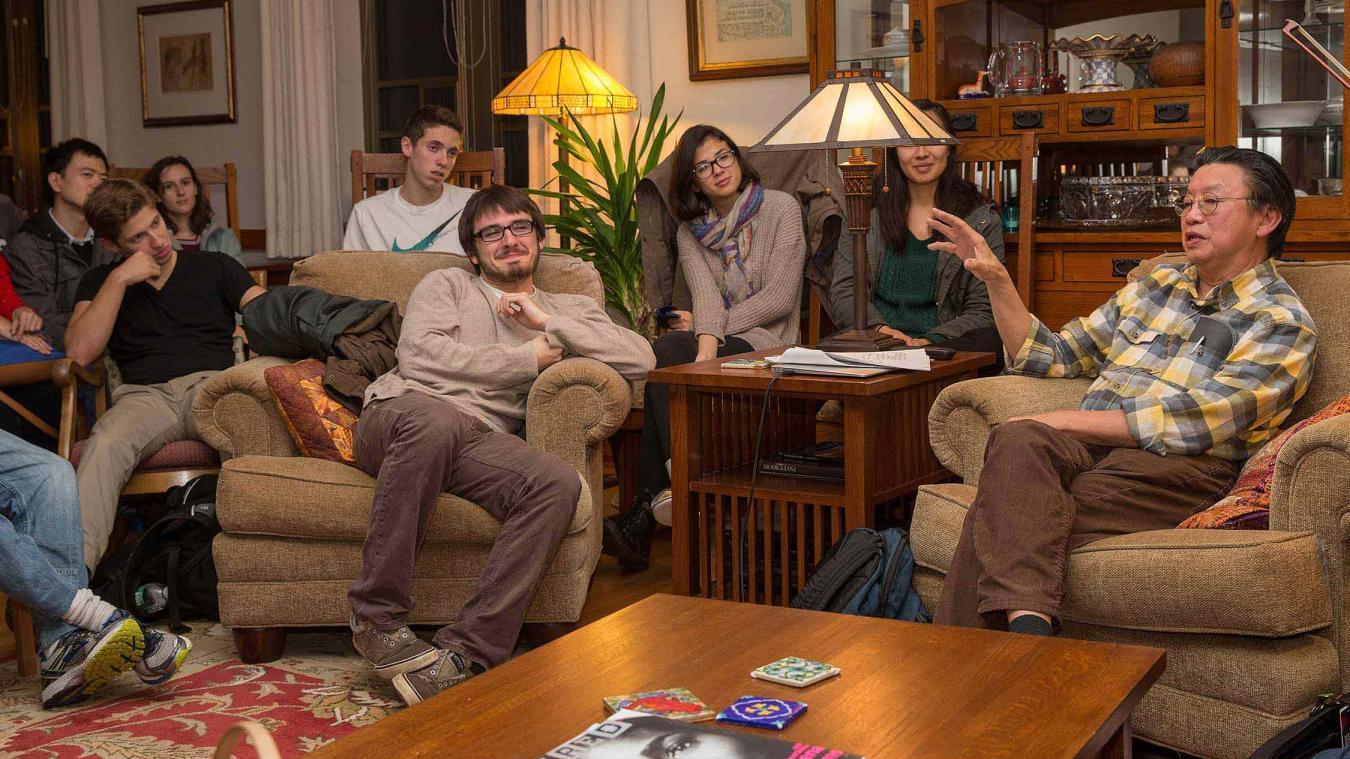
NB&B offers a broad range of courses and research opportunities for undergraduate students, making it the most popular biology concentration at Cornell.
The associated graduate field of Neurobiology and Behavior encompasses all aspects of neuroscience and behavioral research on Cornell’s Ithaca campus. The graduate program's goal is to advance the understanding of neurobiology and behavior by training the next generation of scientists working at this exciting interface.
Our teaching mission is to integrate research themes into two flagship courses, BioNB 2210 (Introduction to Behavior) and BioNB 2220 (Introduction to Neuroscience), and to explore them in greater depth in our upper level courses. In the videos below, NBB faculty instructors give an overview of the structure and significance of these two keystone courses:
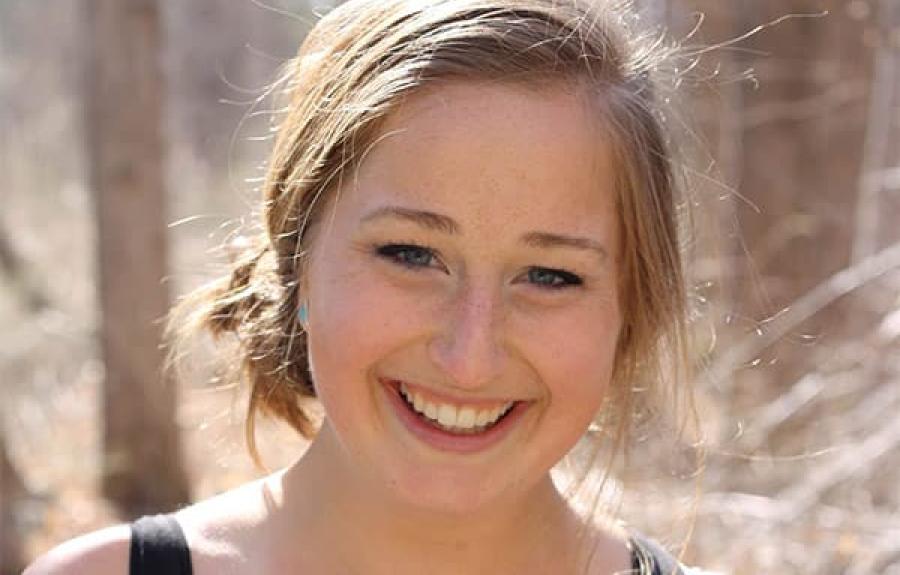
A recent Cornell graduate with a concentration in NBB, Eliza Baird-Daniel fondly remembers her time participating in research in the lab of Professor Jesse Goldberg:
"Dr. Goldberg, in particular, has been an incredible source of encouragement and guidance. I am so honored to have worked with someone who is such a remarkable teacher, and has allowed me the intellectual power and freedom to design experiments and explore scientific questions."


Mark Sarvary, Ph.D. ’06, senior lecturer of neurobiology and behavior in the College of Agriculture and Life Sciences receives The Stephen H. Weiss Teaching Award.
Read more
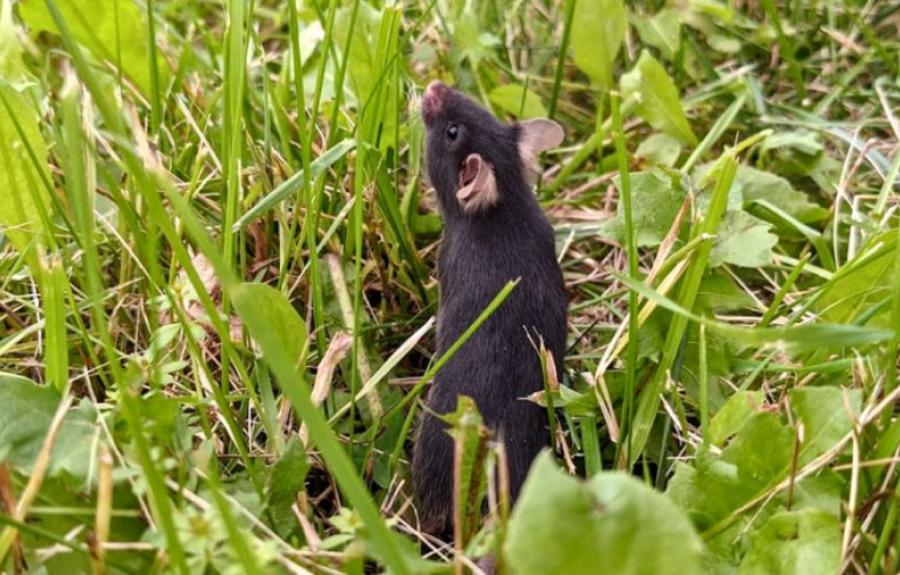
Cornell Researchers are studying mice in an outside enclosure where they are allowed to roam freely. As quoted by Matthew Zipple, postdoctoral researcher in the neurobiology and behavior department, "We put them in the field for a week, and they returned to their original levels of anxiety behavior...
Read more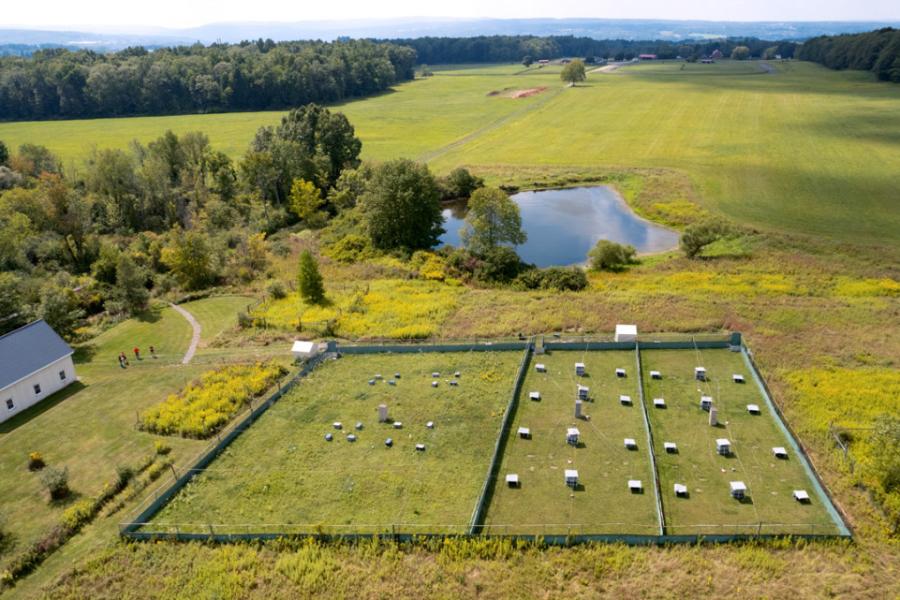

When postdoctoral researcher Matthew Zipple releases lab mice into a large, enclosed field just off Cornell’s campus, something remarkable happens.
Read more
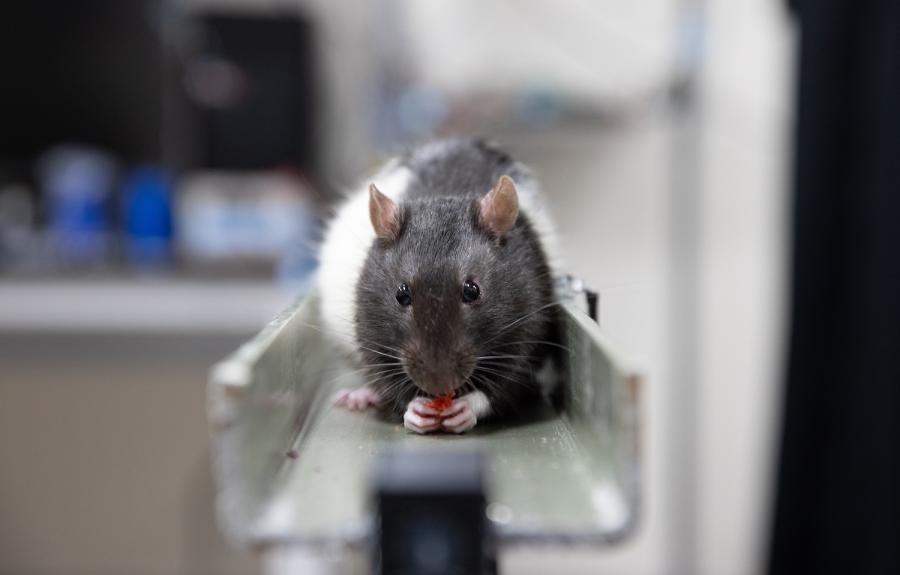
Antonio Fernandez-Ruiz, assistant professor and Nancy and Peter Meinig Family Investigator in the Life Sciences of neurobiology and behavior and Azahara Oliva, assistant professor of neurobiology and behavior found a pattern of ripples in Brain activty during sleep that affects memories. Azahara Ol...
Read more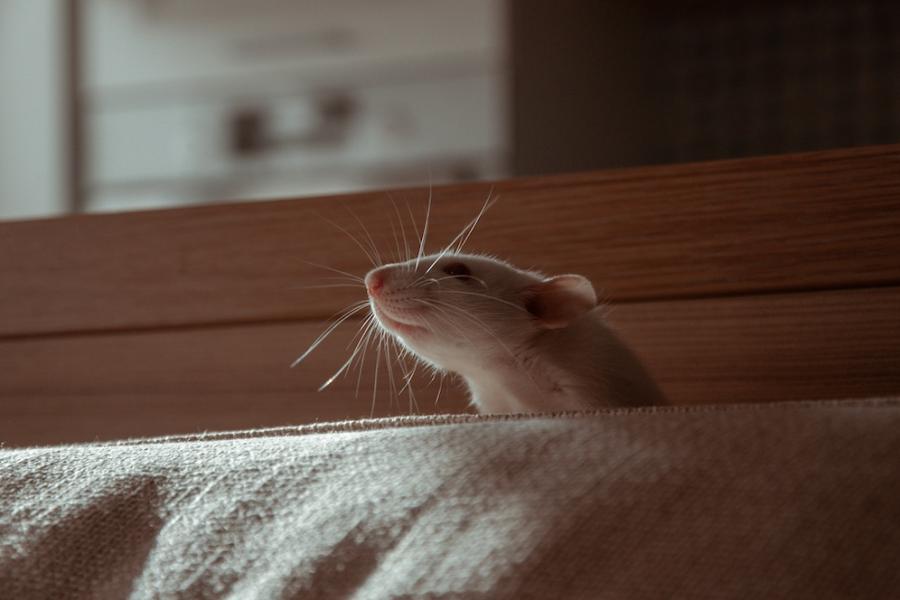

The mice could remember new experiences that would normally be forgotten – a finding with important implications for treating Alzheimer’s disease.
Read more

Howard Howland, Ph.D. ’68, a neurophysiologist who studied the eyes of humans and animals, died Oct. 26 in Ithaca. He was 92.
Read more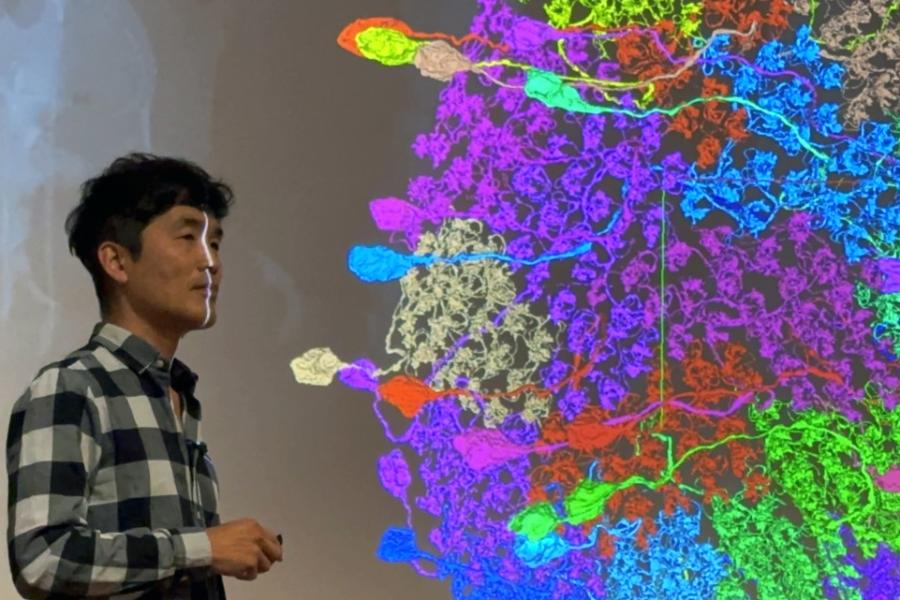

The event was an example of Cornell’s interdisciplinary commitment to advancing the frontiers of neurotechnology.
Read more


Cornell researchers and collaborators have developed a neural implant so small that it can rest on a grain of salt, yet it can wirelessly transmit brain activity data in a living animal for more than a year.
Read more